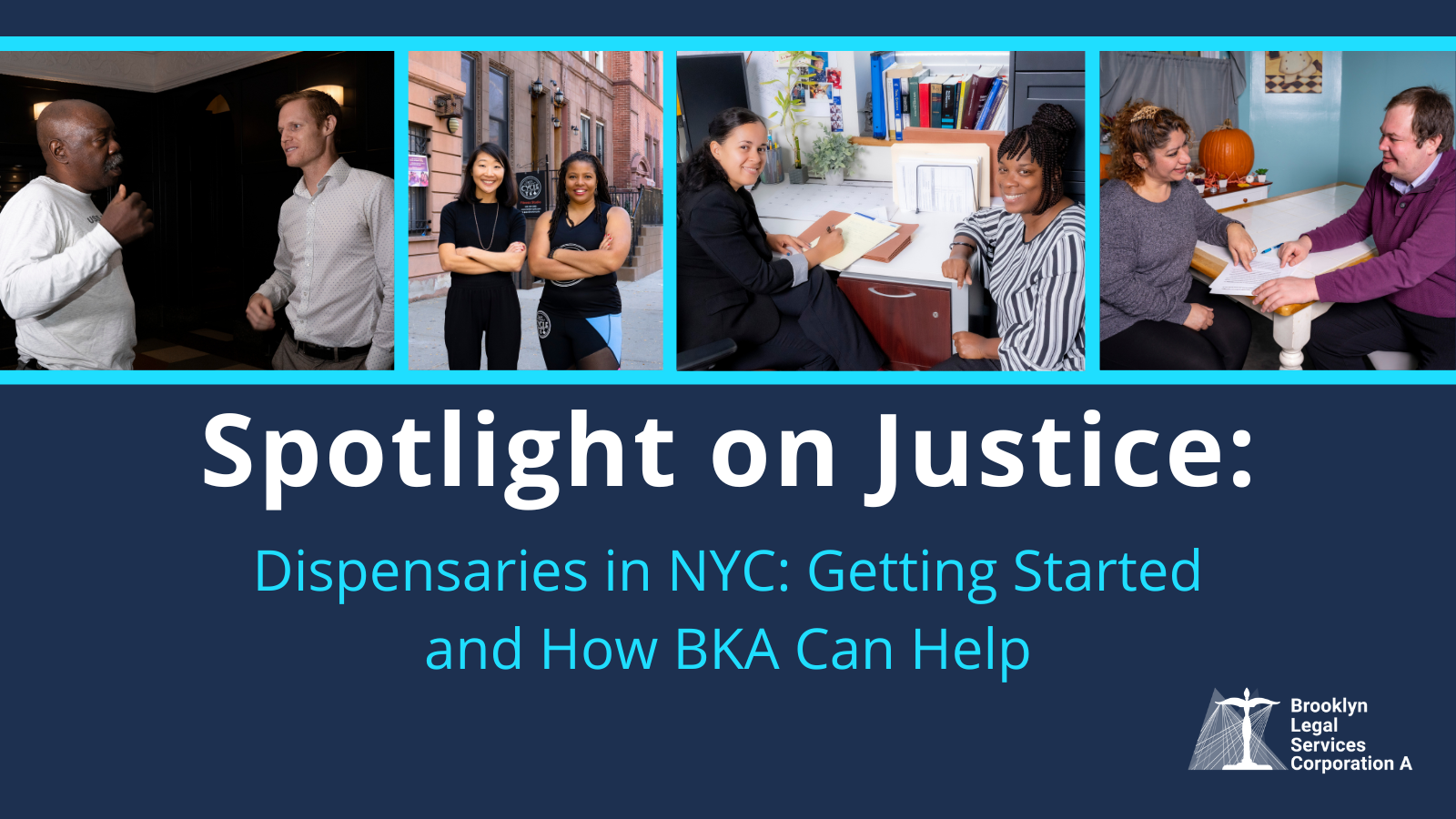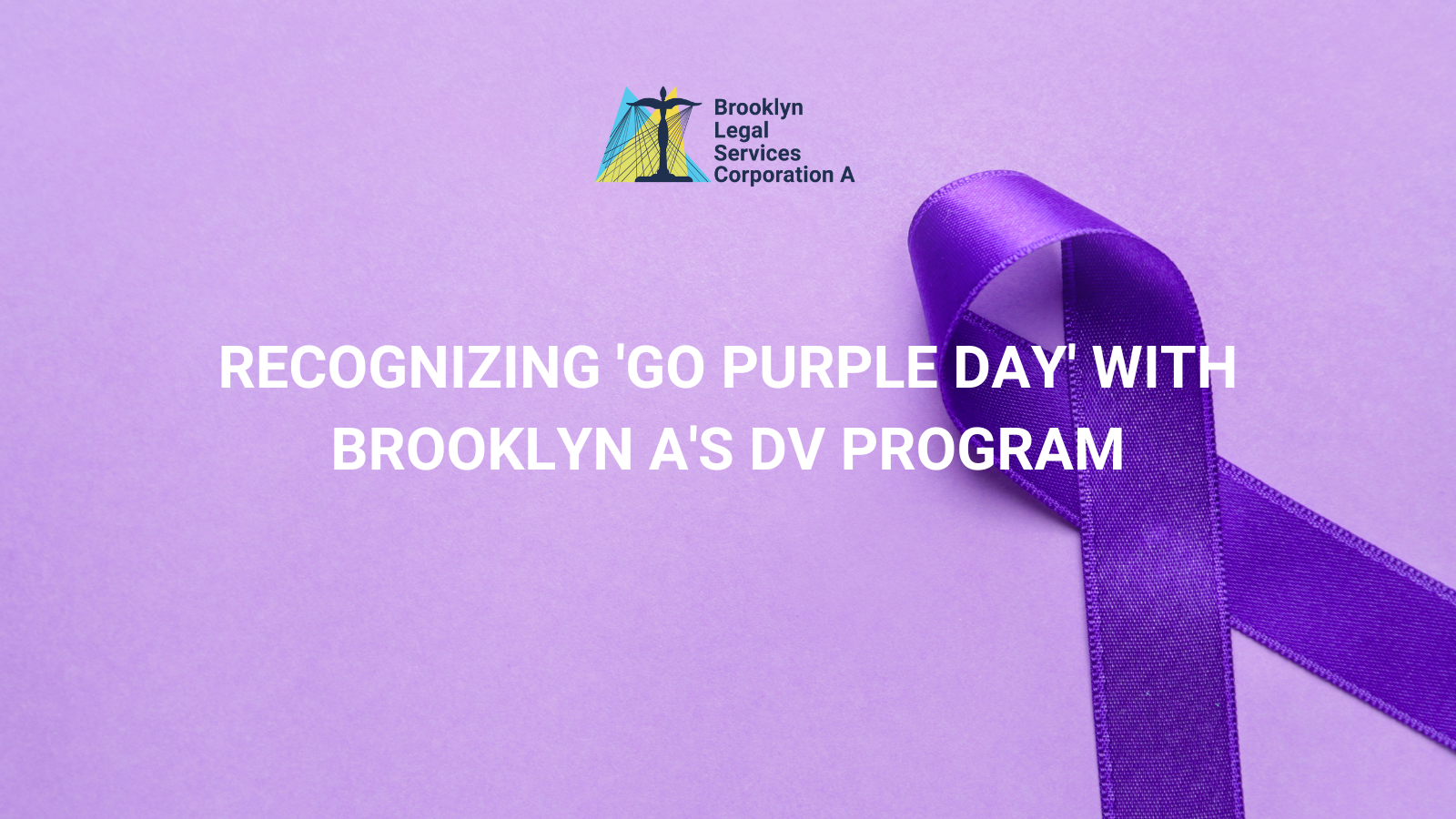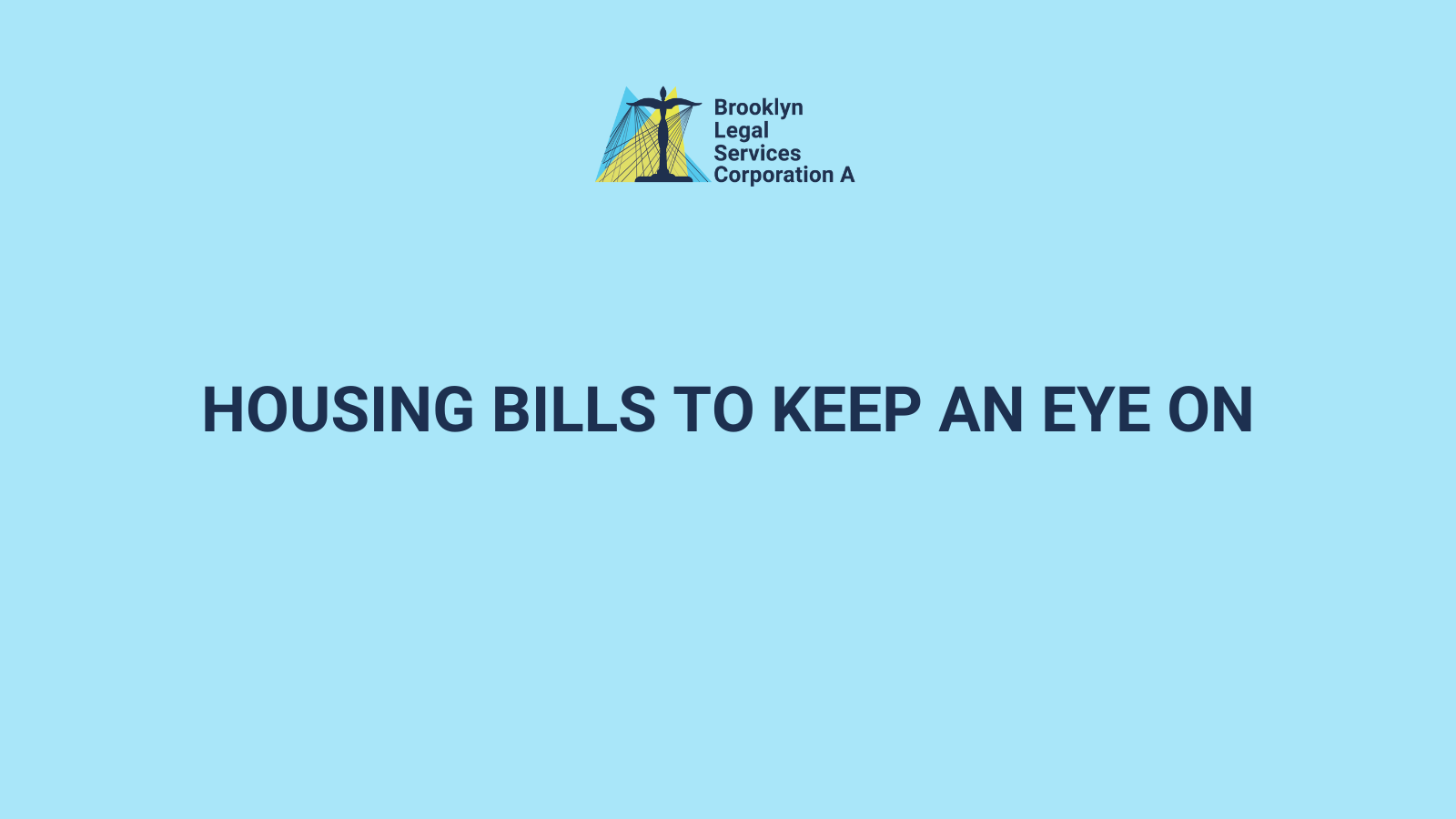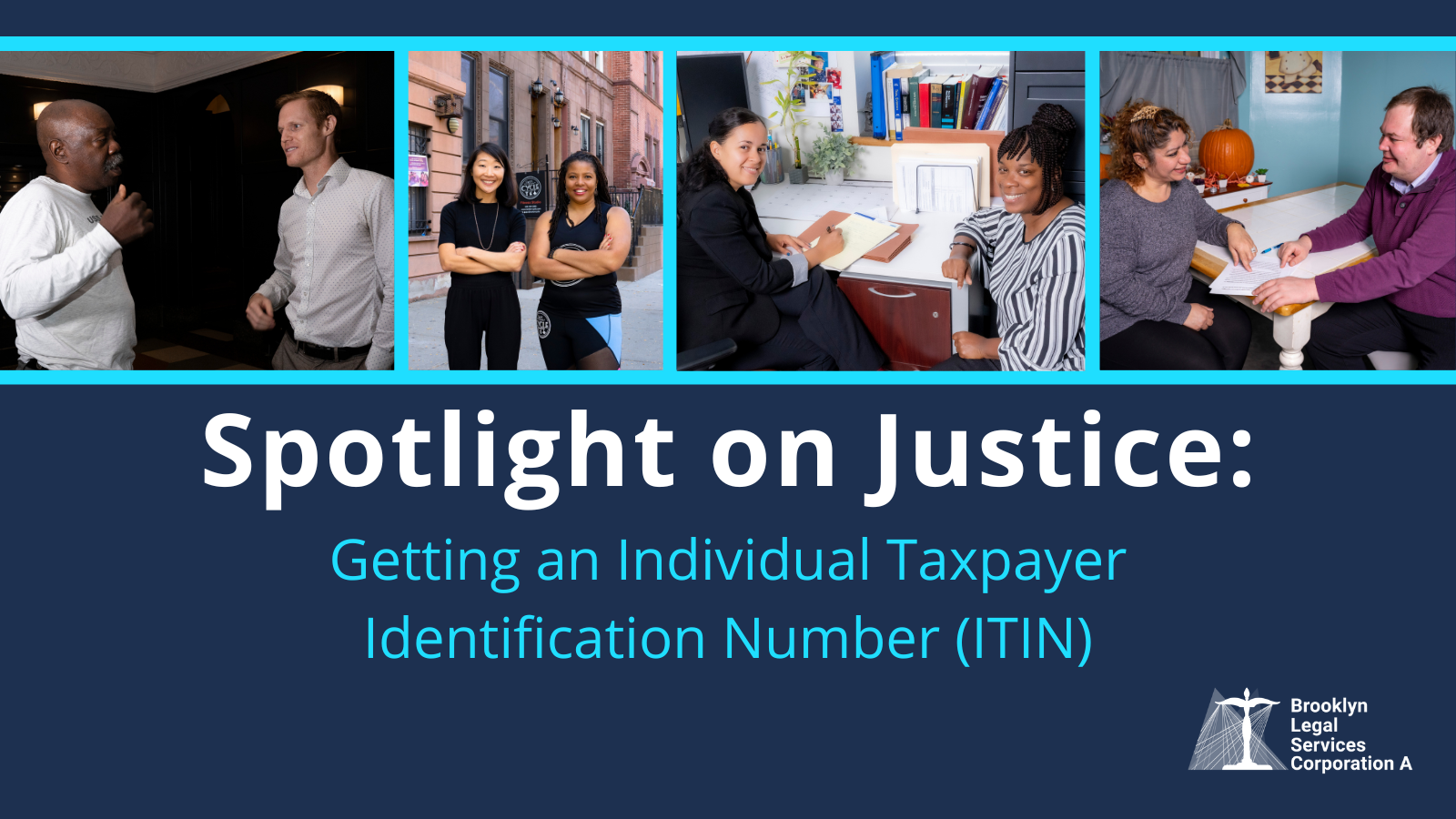By Daniela Adao October is an important month for Brooklyn A’s Domestic Violence Program: it…

Dispensaries in NYC: Getting Started and How BKA Can Help
By Dannaliz Mieses
Cannabis is here, weaving its roots into the fabric of entrepreneurship much like any other small business venture. With the recent legalization in New York, a wave of opportunity has surged, beckoning first-time business owners to explore the budding industry. Whether you’re a seasoned entrepreneur or a newcomer eager to delve into the world of cannabis, Brooklyn A is here to guide you through the labyrinth of licensure processes and regulatory intricacies.
First, what is going on with cannabis laws in New York?
What is CAURD?
Conditional Adult-Use Retail Dispensary or CAURD is a type of license that, while not included in the original Marijuana Regulation and Taxation Act (MRTA), has been created and used by the Office of Cannabis Management (OCM) and the Cannabis Control Board (CCB) in order to give priority to justice-involved people hoping to break into the industry. CAURD applicants were the first to receive licenses for retail cannabis sales in New York.
To qualify for a CAURD license as an individual entrepreneur, applicants must be justice involved, own a qualifying business with sole control, and have a significant presence in New York State. To be a “justice involved” individual, someone must: have been convicted of a marijuana-related offense in NYS before March 31, 2021; or had a parent, guardian, child, spouse or dependent so convicted; or be the dependent of someone who was so convicted.
CAURD Injunction
A lawsuit from this summer alleging CAURD’s preferential licensing was unfair led to an injunction that both paused the approval of any new CAURD applications and halted the already-approved CAURD license holders from opening stores despite having licenses to do so. While the case was ongoing, in October of this year a broad variety of individuals and small businesses across the state became eligible to apply for cultivator, processor, distributor, microbusiness, and retain dispensary licenses, as well as for an adult-use retail dispensary license during this application window.
The court specifically carved out certain exemptions to the injunction, such as those applicants who, prior to August 7, 2023, met all requirements for licensing.
Injunction Lifted and the New Landscape for CAURD Cannabis Entrepreneurs
On December 1, 2023, the New York State Supreme Court lifted the injunction preventing the state’s Office of Cannabis Management (OCM) from processing CAURD licenses. This was a significant victory, as OCM Executive Director Chris Alexander put out in a statement: “Today is a good day for New York, for the dream of equity in cannabis, and for every New Yorker hoping to have a legal, licensed cannabis dispensary in their community.”
However, challenges still remain for cannabis entrepreneurs interested in CAURD licenses. Part of the settlement precludes OCM from issuing any “new or additional provisional” CAURD licenses until April 1, 2024. This pause in licensing adds a layer of uncertainty and additional need for planning for entrepreneurs vying to secure their foothold in the industry. Coupled with this, the stringent regulations governing dispensary locations, including the mandated distance from schools, houses of worship, and the requirement for dispensaries to be at least 1,000 feet apart, have significantly narrowed the pool of available spaces.
In addition, the proliferation of illegal, gray-market dispensaries poses a significant challenge, creating an uneven playing field. As justice-involved individuals who were initially excluded from the early retail landscape now venture into the cannabis market, they find themselves competing not only against licensed sellers who often have substantial financial backing, but also against the entrenched presence of unregulated establishments. This not only undermines lawmakers’ intentions to prioritize those with marijuana convictions but also complicates the journey for new entrants navigating a crowded market.
An Alternative Path through the SEE Program
One alternative for justice-involved individuals who are interested in licensure would be to pursue the social and economic equity (SEE) program for regular adult use licensure rather than CAURD. The Cannabis Law establishes a goal of awarding fifty percent (50%) of all adult-use licenses to distinct SEE groups including:
- Individuals from communities disproportionately impacted by cannabis prohibition
- Minority-owned businesses
- Women-owned businesses
- Distressed farmers
- Service-disabled veterans.
All SEE applicants will receive a 50% reduction in application fees and assistance from the Office of Cannabis Management. SEE applicants will also receive at 50% reduction in licensing fees and direct support and technical training through the Cannabis Hub & Incubator Program (CHIP).
How can Brooklyn A help?
For those interested in opening a dispensary, Brooklyn A’s small business attorneys have experience with CAURD licensure and real estate law, both of which can be essential to getting a CAURD-licensed dispensary established quickly. Although proof of property control is not a requirement to get a license, CAURD licensees are required to submit a post-selection application via the NYS Business Portal along with proof of control over a proposed retail dispensary location in the form of a lease, deed, or equivalent by December 18. Until that time, we can help you negotiate a Letter of Intent (LOI) with your landlord to help streamline this process.
After December 18, we can continue to help you navigate the space requirements for CAURD-licensed dispensaries, though it will likely no longer be through that expedited process.
For those opting not to seek property control during the initial stage of your business, we’ve got you covered. Upon securing a provisional license, you will have up to 12 months to secure a property and submit documentation to obtain a final license. Brooklyn A can help guide you through this critical phase and help you navigate the increasingly complicated regulatory framework governing legal cannabis in New York City.



